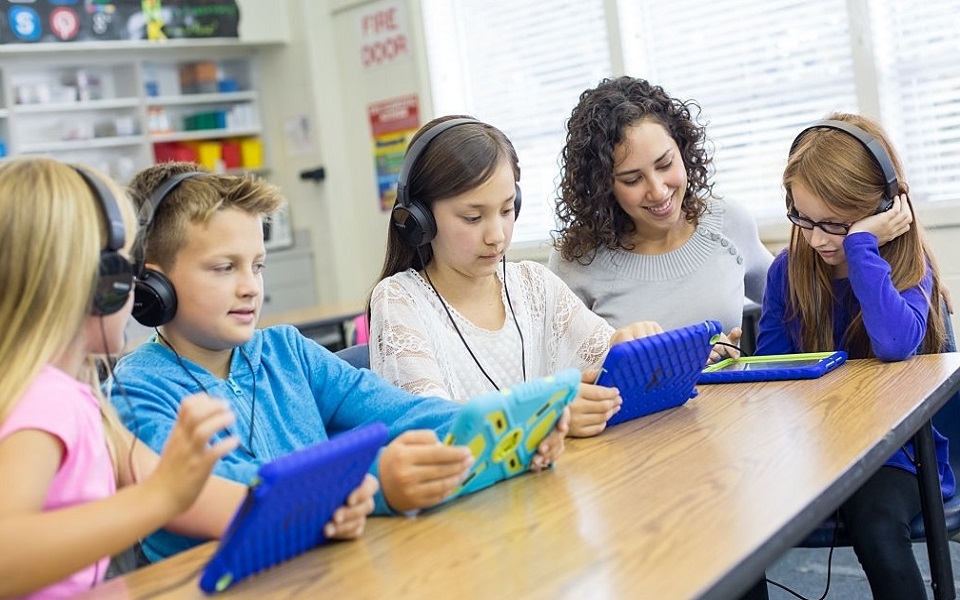
10 Innovative Pedagogical Strategies For Modern Education
30th June 2021
Education in the 21st century has evolved beyond textbooks and chalkboards. The modern classroom is a space for collaboration, creativity, and critical thinking, a place where students are not just passive listeners but active participants.
With technology and global connectivity transforming how students learn, teachers must adopt flexible and innovative pedagogies that meet diverse learning needs. Innovative teaching strategies not only enhance student engagement but also nurture essential life skills like problem-solving, adaptability, and teamwork.
Below are ten powerful pedagogical approaches that every modern educator can use to make learning meaningful, relevant, and future-ready.
Top 10 Innovative Pedagogical Strategies For Modern Education
Modern classrooms demand creativity, flexibility, and learner-centered approaches. These ten innovative strategies can help teachers engage students more effectively, inspire critical thinking, and prepare them for real-world success.
1. Argumentation and Critical Dialogue
Encouraging learners to question, discuss, and debate ideas builds critical thinking and deeper understanding. Argumentation-based learning allows students to explore multiple viewpoints, justify their reasoning, and refine their thoughts through dialogue.
This method works particularly well in subjects like science, social studies, and literature, where analytical reasoning and perspective-taking matter most.
2. Technology-Enhanced Learning (Audio-Visual Tools)
Integrating multimedia elements such as videos, infographics, and interactive presentations can turn an ordinary lesson into an engaging experience. Visual and auditory stimuli help learners grasp complex concepts quickly while appealing to different learning styles.
Using educational apps, digital simulations, or mind maps encourages creativity and makes lessons more interactive and memorable.
3. Incidental and Experiential Learning
Not all learning happens through formal instruction — sometimes, the best lessons occur naturally. Incidental learning happens when students discover insights while engaging in hands-on activities, discussions, or play.
Teachers can design experiences that encourage exploration and self-reflection, allowing students to connect lessons with real-life scenarios effortlessly.
4. Dynamic and Stimulating Learning Environments
A bright, interactive, and flexible classroom can make a significant difference in student engagement. From colourful visuals to open seating arrangements and digital boards — every design choice impacts how students think and feel.
An engaging environment fosters creativity, focus, and collaboration while making learning feel exciting instead of routine.
5. Computational Thinking and Problem Solving
Computational thinking teaches students how to break down complex problems into smaller, manageable parts. It promotes logical reasoning, creativity, and systematic thinking — essential for both STEM and non-STEM subjects.
By integrating coding, puzzles, and analytical tasks into lessons, teachers can help learners strengthen problem-solving skills that extend beyond the classroom.
6. Embodied Learning (Mind-Body Connection)
Learning is most effective when both the mind and body are engaged. Embodied learning connects movement with understanding — for example, role-playing historical events or using gestures to explain abstract concepts. This approach helps kinesthetic learners grasp information faster and encourages active participation from all students.
7. Positive Behaviour Management
A respectful, safe, and inclusive classroom atmosphere is the foundation for effective learning. Teachers who use positive reinforcement, empathy, and consistent expectations can build trust and cooperation among students.
When learners feel valued and understood, they are more likely to engage, participate, and perform to their full potential.
8. Game-Based Learning and Stealth Assessment
Incorporating game elements, such as challenges, points, or levels turns learning into an exciting experience. Game-based learning encourages competition, curiosity, and perseverance.
Stealth assessment, where progress is measured through gameplay rather than formal tests, helps teachers evaluate skills like creativity, decision-making, and resilience in a fun, low-pressure environment.
9. Adaptive and Personalized Learning
Every learner is unique and adaptive learning tailors lessons to individual progress and preferences. Using digital tools or differentiated instruction, teachers can adjust content difficulty and pacing based on student performance.
Personalized learning empowers students to take ownership of their education, helping them stay motivated and confident throughout their learning journey.
10. Context-Based and Real-World Learning
Connecting lessons to real-world contexts helps students see the why behind what they learn. When learners relate content to their daily lives, communities, or future careers, knowledge becomes meaningful and lasting.
Fieldwork, community projects, or case-based discussions allow students to apply classroom concepts to authentic situations, bridging theory and practice.
Final Thoughts
Modern education thrives on innovation, inclusivity, and engagement. Teachers who embrace new pedagogical strategies move beyond traditional teaching to create transformative learning experiences.
By integrating technology, promoting collaboration, and nurturing critical thinking, educators can inspire students to become lifelong learners ready to thrive in an ever-changing world. Innovation in pedagogy isn’t just about new tools, it’s about reimagining how learning happens.
Frequently Asked Questions (FAQs)
1. What are pedagogical strategies in modern education?
Pedagogical strategies are structured approaches teachers use to plan, deliver, and assess learning. In modern education, they focus on creativity, inclusivity, technology integration, and student-centered learning.
2. Why are innovative teaching methods important today?
Innovation in teaching keeps learners engaged, promotes critical thinking, and prepares students for real-world challenges. It transforms passive classrooms into active learning spaces where students think, explore, and create.
3. How can technology improve modern pedagogy?
Technology enhances pedagogy by making lessons interactive and accessible. Through digital tools, multimedia content, and adaptive platforms, teachers can personalize learning and reach students of all abilities.
4. What are some effective examples of innovative teaching strategies?
Examples include game-based learning, adaptive learning systems, blended classrooms, and project-based education. These methods make learning hands-on, engaging, and relevant to real-life situations.
5. How can teachers implement innovative pedagogy in the classroom?
Start small by integrating one new method at a time, like using digital tools, encouraging collaborative learning, or designing real-world projects. Regular reflection and feedback help refine these practices effectively.
6. Do innovative pedagogies work for all age groups?
Yes. Whether in primary, secondary, or higher education, innovative strategies can be adapted to suit developmental levels, learning goals, and cultural contexts. The key is flexibility and creativity in approach.
Written By : Ruchi Mehta




